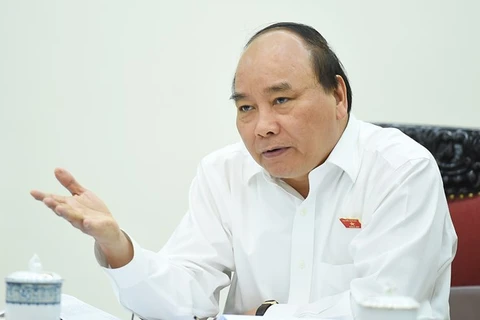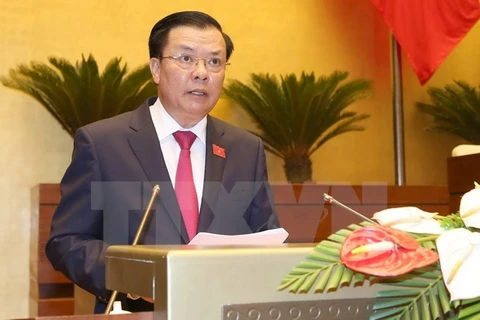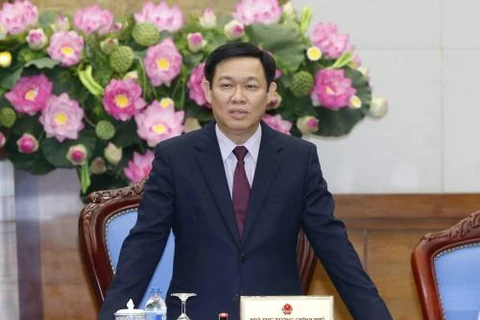 Deputy Prime Minister Vuong Dinh Hue has urged the financial sector to take measures on restructuring the state budget and public debt management (Source: organisation board)
Deputy Prime Minister Vuong Dinh Hue has urged the financial sector to take measures on restructuring the state budget and public debt management (Source: organisation board) Hanoi (VNA) – Deputy Prime Minister Vuong Dinh Hue has urged the financial sector to take measures on restructuring the state budget and public debt management to ensure the nation’s safe and sustainable finance.
During a conference on July 5 reviewing the performance of the financial sector in the first six months of this year and set out tasks for the second half, Deputy PM Hue hailed the sector’s efforts to complete the state budget collection targets assigned by the National Assembly.
However, he pointed out the sector’s shortcomings, including slow progress in equitisation, divestment, reforming State-owned enterprises (SOEs), disbursing public investment, among others.
The Deputy PM called on the sector to make great efforts to accomplish the state budget collection and spending targets in 2017, in which the collection targets should be exceeded by 5-8 percent.
Ministries, sectors and localities that fail to complete their state budget collection targets will have to either find alternative sources to offset their deficits or cut down their expenditures accordingly, Hue said.
The Deputy PM requested the Finance Ministry to accelerate the restructuring of SOEs, securities and insurance while completing legal documents on equitisation and divestment.
At the conference, Deputy Minister of Finance Huynh Quang Hai underlined the challenges facing the sector in the period, saying that the country’s economic growth rate stood at 5.73 percent, lower than the target of 6.7 percent, with slight increases in industrial production, animal livestock and disbursement.
In the first half this year, the total state budget collection reached 563.5 trillion VND (around 24.8 billion USD), equivalent to 46.5 percent of the estimates, up 13.9 percent year-on-year, Hai noted.
Fifty four localities collected higher amounts as compared to the same period last year. But, 18 of them failed to meet their targets (under 48 percent) while nine others collected less than the same period last year due to low growth in a number of key sectors, including mining, hydropower, automobile production and assembling, mobile phone production, food production and processing.
The budget spending was estimated at 582.9 trillion VND (25.6 billion USD), equivalent to 41.9 percent of the estimates, up 8.3 percent from the same period last year.
Hai suggested the financial sector better institutions and accelerate administrative reform focusing on taxation, customs, thus improving the country’s business environment.
Taxation and customs agencies should devise drastic and continuous measures to well manage tax payers and tax sources, in order to surpass the state budget collection targets in 2017.-VNA
VNA























